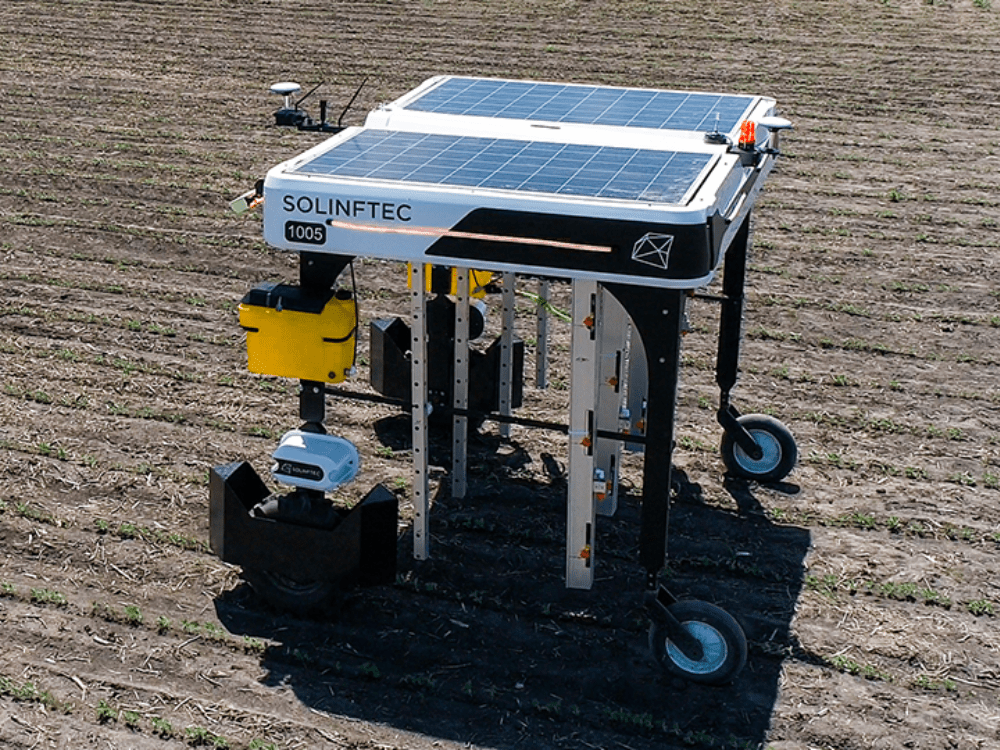Disclosure: AFN’s parent company, AgFunder, is an investor in Solinftec.
- US- and Brazil-based ag robotics startup Solinftec has unveiled its new Solix Sprayer robot that can autonomously detect and spray weeds in the field. The new ‘bot joins the Solix Scouting robot that’s already in the fields in Brazil and the US.
- Manufacturing, research and development company McKinney Corporation, which specializes in prototype jobs, will produce and manufacture the Solix Spray robot, which is slated to become commercially available in 2023.
- Solinftec says its new offering can help farms reduce their chemical inputs and deliver a lower carbon footprint and environmental impact.
Why it matters:
Spot-spray weed-killing robots offer a more sustainable, cost-effective product for farms that face soaring input costs, supply chain hiccups, and an inflationary economic environment.
Solinftec’s Solix Spray robot applies spot-spray applications to growers’ fields, versus the old ‘spray-and-pray’ method that’s increasingly seen as wasteful and bad for the environment. The machine is powered by four solar panels that control the drive and spray systems; Solix can also provide reports to farmers on crops, identify weeds, diseases, and pests, and offer other data such as analysis on inputs saved.
In a statement, Leonardo Carvalho, Solinftec’s director of operations, said that weed detection is ‘a leading issue in fields across North America’ and that the Solix Sprayer can eliminate drift and social compaction caused by larger machines, helping to lower farms’ environmental impact.
Solix Sprayer can service up to 96 acres per day ‘depending on the field shape and terrain,’ says Solinftec.
The company is currently running pilots for both its models in North America in partnership with ag cooperative Growmark as well as Purdue University in the US. In Canada, Solinftec works with Stone Farms and University of Saskatchewan, while the Solix Scouting robot is manufactured in Brazil by Hi-Mix Eletrônicos.





